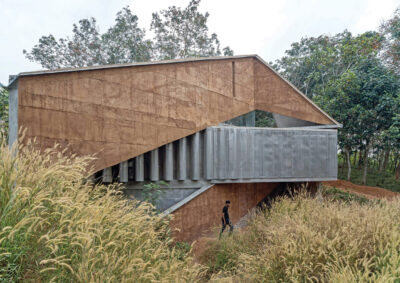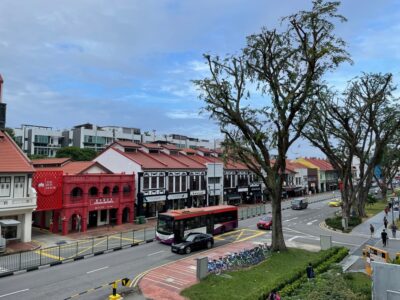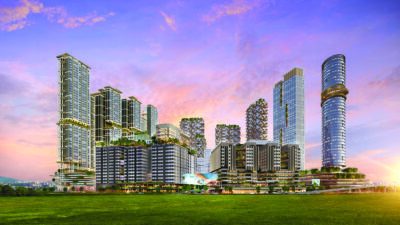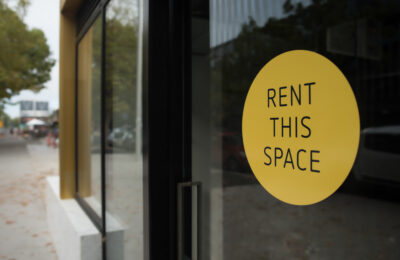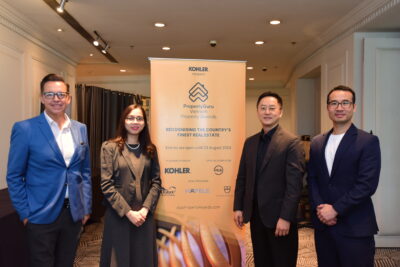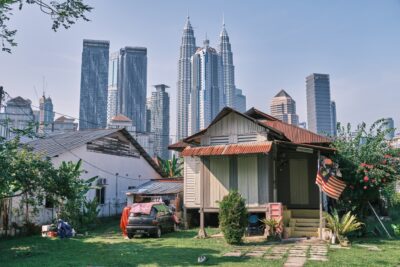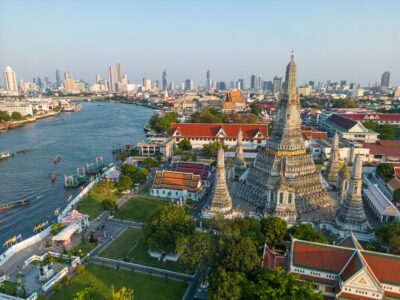Watch: Six ideas to shape our cities
In this special lecture, I provide a glimpse into the challenges and opportunities that today’s society faces
SIX IDEAS TO SHAPE OUR CITIES from Pomeroy Studio on Vimeo.
Cities, their infrastructure and the people who live, work, play and learn within them, are going through unprecedented change. Since 2007, half of the world’s population has been residing in cities and this will rise to 75% by 2050. The current world population density stands at 51 people per square kilometre and by 2050, this is projected to rise to 66 people per square kilometre. Cities cover only 2% of the World’s land area, and yet account for an astonishing 70% of greenhouse gas emissions. All the while, Culture is slowly being eradicated through globalisation and technological advancement. We have also witnessed a global shift over the last 200 years from industrial, to technological and now digitally-driven economies; and in today’s world, it is easy to question whether technology is really enhancing our lives. Civil society, state, academia and the private sector will need to collectively address these burning social, spatial, environmental, economic, cultural and technological issues in order to shape more habitable built environments, which will safeguard the planet.
So I do hope this video provides a glimpse into the challenges and opportunities that today’s society faces and provides an overview of how Pomeroy Studio’s design and research works seek to address such burning issues respectively, in order to deliver innovative sustainable solutions for future generations.
About Prof. Jason Pomeroy
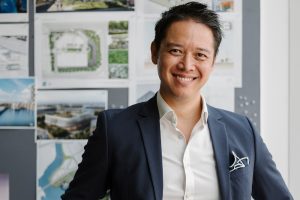 Jason Pomeroy is an award-winning architect, academic, author and TV presenter, regarded as one of the world’s thought leaders in sustainable design. He is the Founder of Singapore-based Pomeroy Studio, Jason Pomeroy Architects and Pomeroy Academy: sustainable urbanism, architecture, design, research and education firms. His career has included critically-acclaimed green cities, buildings and landscapes: from the microscale of the first zero-carbon house in Asia, to the macroscale of Indonesia’s ‘Silicon Valley’. Pomeroy has authored Cities of Opportunities: Connecting Culture and Innovation (2020), Pod Off-Grid: Explorations into Low Energy Waterborne Communities (2016), The Skycourt and Skygarden: Greening the Urban Habitat (2014) and Idea House: Future Tropical Living Today (2011). He continues to raise cultural awareness of cities through his TV series Smart Cities 2.0, City Time Traveller, Futuropolis and City Redesign. He gained Bachelor and Master degrees from the Canterbury School of Architecture and the University of Cambridge, and a PhD from the University of Westminster.
Jason Pomeroy is an award-winning architect, academic, author and TV presenter, regarded as one of the world’s thought leaders in sustainable design. He is the Founder of Singapore-based Pomeroy Studio, Jason Pomeroy Architects and Pomeroy Academy: sustainable urbanism, architecture, design, research and education firms. His career has included critically-acclaimed green cities, buildings and landscapes: from the microscale of the first zero-carbon house in Asia, to the macroscale of Indonesia’s ‘Silicon Valley’. Pomeroy has authored Cities of Opportunities: Connecting Culture and Innovation (2020), Pod Off-Grid: Explorations into Low Energy Waterborne Communities (2016), The Skycourt and Skygarden: Greening the Urban Habitat (2014) and Idea House: Future Tropical Living Today (2011). He continues to raise cultural awareness of cities through his TV series Smart Cities 2.0, City Time Traveller, Futuropolis and City Redesign. He gained Bachelor and Master degrees from the Canterbury School of Architecture and the University of Cambridge, and a PhD from the University of Westminster.
About Pomeroy Studio
Pomeroy Studio are an award-winning international team of designers and thought leaders of sustainable built environments. The studio is comprised of master planners, landscape architects, architects, interior and graphic designers and sustainability consultants. Quantitative and qualitative research complements an interdisciplinary design process that lies at the foundation of their creative design and decision-making. Designs are rigorously tested to objectively reduce the reliance on natural resources, to preserve the natural and built environment. This has generated people centred places, from the macro-scale of cities to the micro-scale of buildings that pushes the envelope of design and balances a ‘creative vigour with an academic rigour’.
Recommended
Meet the vagabond architect behind India’s housing scene
Vinu Daniel is helping to shake up India’s home building setting
Where Asian real estate stands in a fragmented, warmer world
Asia’s real estate industry faces many and varied challenges as external factors continue to bite
6 sights to see in Singapore’s Marine Parade
Handily located Marine Parade has emerged as a vibrant investment choice in the Lion City
There’s a township dedicated to health and wellness in Malaysia
Property seekers have their health needs catered for at KL Wellness City

